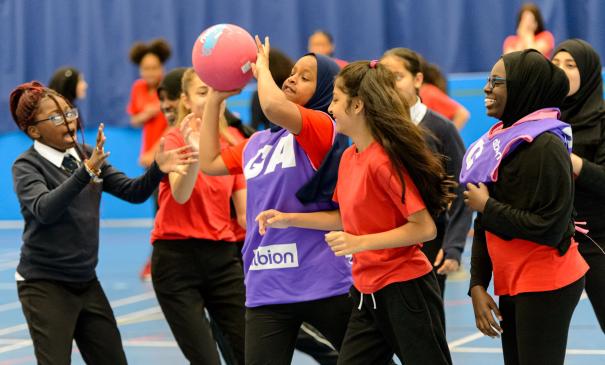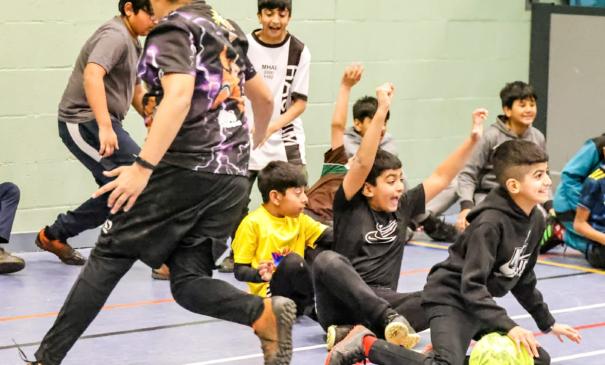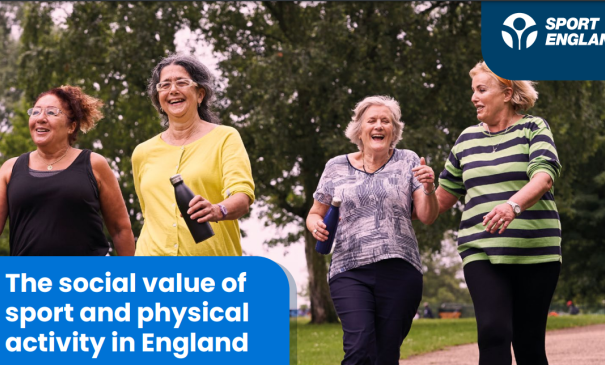Disabled people are missing out on the benefits of sport and physical activity to a greater extent than non-disabled people due to the rising cost of living, according to a new survey published by the national charity Activity Alliance.
As a key network within the Sport for Development Coalition, Activity Alliance has helped to co-design the Coalition’s #OpenGoal shared advocacy framework over the last 18 months. The framework highlights the wide range of benefits - beyond physical health alone - that sport for development programmes can help to generate including improved mental wellbeing, increased educational attainment and employability, social integration and community cohesion.
DISPROPORTIONATE
However the Annual Disability and Activity Survey 2022-2023 indicates that financial barriers are impacting disabled people’s activity levels, with four in 10 (37%) reporting the cost-of-living crisis has affected how active they are compared to three in 10 (32%) of non-disabled people. The survey consulted 2,000 disabled and non-disabled adults aged 16-plus.
The responses also show that disabled people’s mental health and wellbeing is being disproportionately affected. Disabled people were nearly three times more likely than non-disabled people to feel lonely always or often (23% versus 8%). Furthermore there are worrying signs of an increase in loneliness for disabled people over the last four years compared to decreasing levels of loneliness for non-disabled people. Since the start of the pandemic, disabled people were more likely to feel isolated (54% versus 30%), yet nearly two-thirds of disabled people who felt lonely agreed that being active could help them feel less lonely (65%).
As well as outlining what the sport and activity sector can do to improve these barriers, respondents were asked what Government should focus on. Nearly two-thirds of disabled people (64%) said the Government should focus on making activities affordable to help more people to be active.
Key findings include:
- Disabled people were more likely to say they wanted to be more active compared to non-disabled people (77% vs 54%). This ‘activity gap’ has remained consistent in previous years, showing an ongoing unmet need.
- 60% of disabled people reported the increase in cost of living has reduced how much they socialise, with 37% saying it has affected how active they are.
- Younger disabled people and people with five or more impairments were most likely to say the cost-of-living crisis has reduced how active they are (58% and 56%) and how much they socialise (74% and 75%).
- There is a clear spending gap for what disabled people are spending and want to spend on physical activity. Disabled people reported spending an average of £13.40 less than non-disabled people on being active each month. Disabled people want to spend more than non-disabled people on being active (34% vs 27%), whereas non-disabled people were more likely to want to spend less (27% vs 19%).
Adam Blaze, Chief Executive at Activity Alliance, said: “We understand decision-makers and providers are also facing economic challenges, but we must ensure that disabled people are never excluded from access to sport and physical activity. Our annual survey provides clear evidence that we need to address concerns in a number of areas to improve opportunity and experiences for disabled people. Activity Alliance and our partners can help organisations to improve and embed the necessary inclusive practices that will make a significant and positive difference.”

Tim Hollingsworth, Sport England CEO and Government disability access advisor for sport and physical activity, said: “This year’s report highlights how the cost of living is being felt acutely by disabled people. While mindful of the financial pressures on organisations in the sector, we would urge all to recognise the report’s findings as part of their work to ensure their offer is affordable and accessible for disabled people.”
About the Annual Disability and Activity Survey:
- A nationally representative survey which tracks changes in experience and perceptions of sport and physical activity. Activity Alliance’s Annual Disability and Activity Survey was conducted by IFF Research. 998 disabled people and 976 non-disabled people aged 16+ took part. The survey took place between August and October 2022, providing a representative profile of disabled people in the UK profile across demographics and with a varied range of impairments. All survey findings were explored with disabled people in workshops.
- In the study, Activity Alliance define a disabled person as anyone who had a long-term health condition, impairment or illness that has a substantial effect on normal daily activities.
- The full report, including a detailed executive summary is available at www.activityalliance.org.uk/annual-survey.



